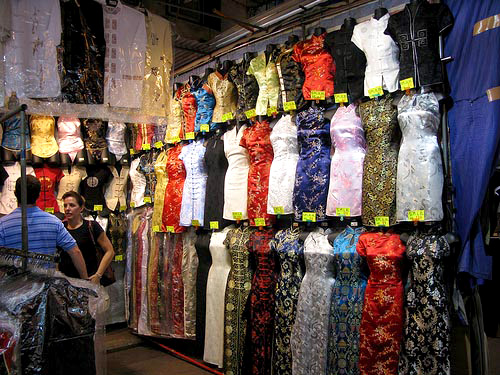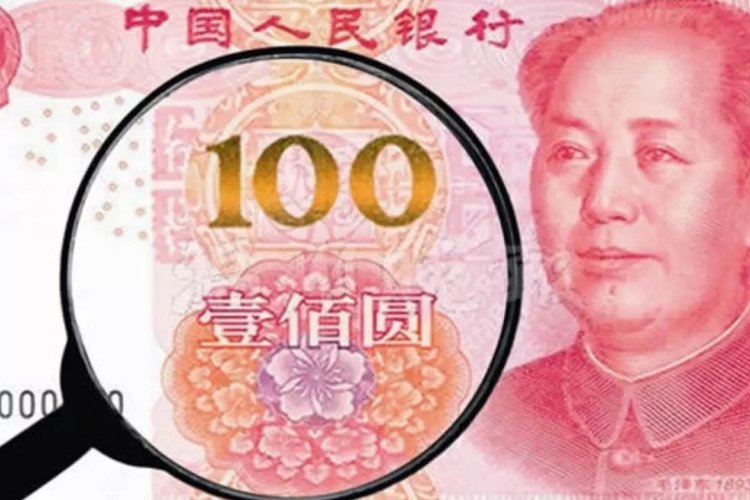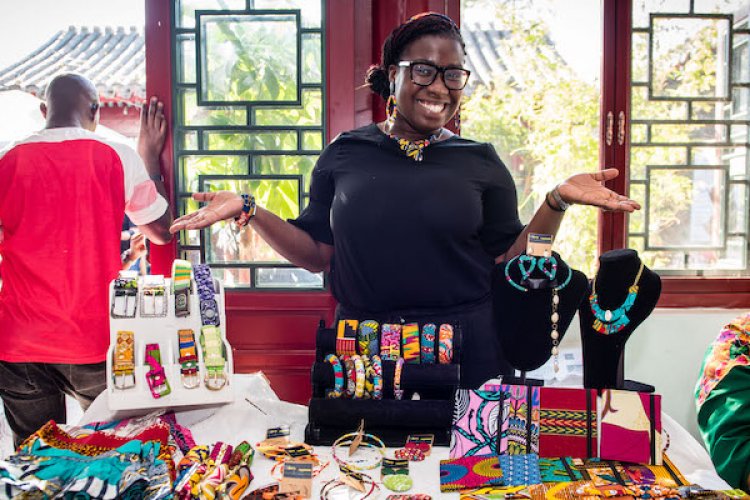Mandarin Monday: How to Haggle for the Best Beijing Bargains
Mandarin Monday is a weekly column where – similar to our Mandarin Month series earlier this year – we help you improve your Chinese by detailing fun and practical phrases and characters.
China is famous for its abundance of knock-offs that can be found online, on street corners, and even in shopping malls. Aside from the Forbidden City, Great Wall ,and Temple of Heaven, most people also have shopping on their to-do list. If you venture to a market, you will need to bring a lot of cash, patience, your bargaining skills, and some important phrases.
READ: See all of our Mandarin-learning coverage here
Tip #1
Always greet the vendor with a friendly hello (你好 nǐ hǎo) and ask the price in Chinese, 这个多少钱?duōshao qián? How much is this?
When visiting these sorts of markets, most vendors will at least triple the prices of their goods if they see a foreigner or tourist coming, so haggling (讲价 jiǎngjià) is a must. Have a look at what the stall is selling, pick stuff up, see if you can find any flaws, mentally make a note of anything you want to buy, act a little nonchalant. Starting the conversation in Chinese shows you mean business and vendors will take you more seriously.
Tip #2
The most important phrase you need to know in China (aside from 你好,再见, and 干杯) is "too expensive" (太贵了!tài guì le!). You need to sound angry and do your best angry Chinese auntie (阿姨 ayi) impression. Emphasise those 4th tones! Turn, throw your hands up in the air and walk away in feigned disgust if you think that will work too. You can always return later.
What?
什么? shénme?
Too expensive!
太贵了! tài guì le!
A little cheaper!
便宜一点儿!piányi yīdiǎnr!
Used to express shock, dissatisfaction
哎呀!āiyā!
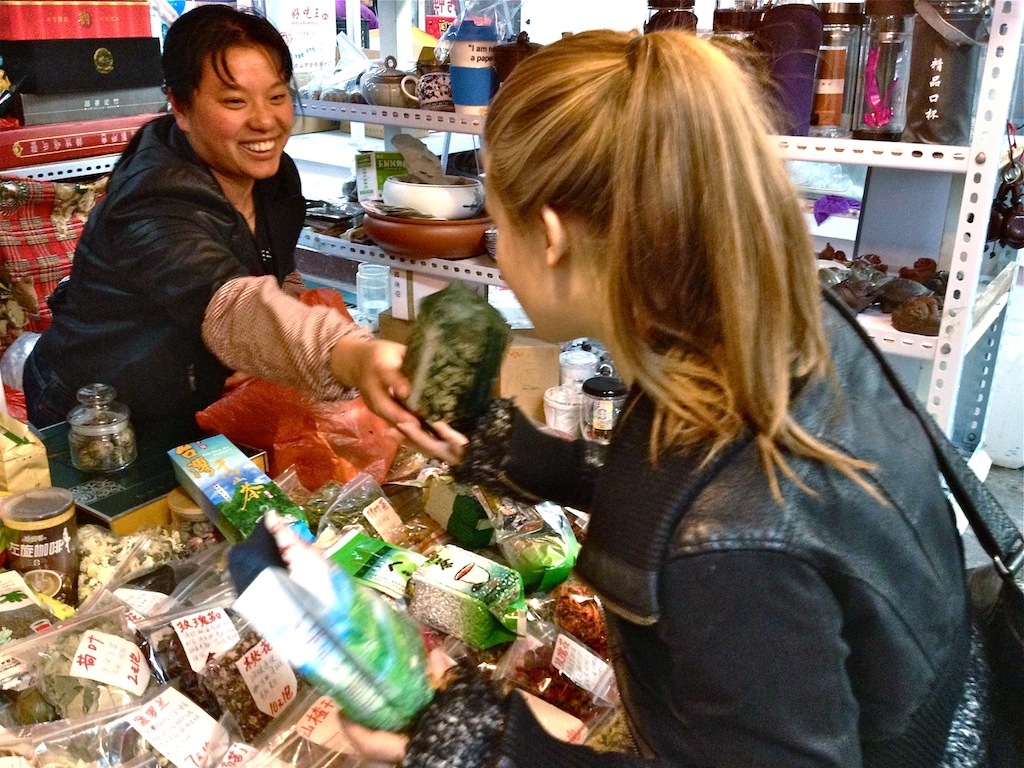
Tip #3
If your Chinese is good enough, make up a few scenarios in your head that might endear the vendor to you. For example, you are here to buy presents for your parents or partner’s birthdays and they really really want X, Y or Z. Often they will ask you to name your price, so setting the scene with some emotional blackmail can sometimes help sweeten the deal.
I want to buy my (mum, dad, wife, husband, girlfriend, boyfriend) a present.
我要给我(妈妈,爸爸,妻子,丈夫,女朋友,男朋友)买礼物。Wǒ yào gěi wǒ (māma, bàba, qīzi, zhàngfu, nǚpéngyou, nánppéngyou) mǎi lǐwù.
Because next week it is his/her birthday.
因为下周是他/她的生日。Yīnwèi xià zhōu shì tā/tā de shēngri.
Can you give me a cheaper price?
你能给我便宜的价格吗?Nǐ néng gěi wǒ piànyi de jiàgé ma?
Tip #4
If they don’t soften up at hearing your sob story, try another angle before naming your price. Sometimes it helps to first beg for forgiveness and ask them not to get angry with you; other times, they like a challenge and to play the game. Play the foreigner (外国人 wàiguórén) card and tell them you know you are being but don’t want to be ripped off (敲诈 qiāozhà). Or you can even play the poor student sympathy card.
I don’t want to pay a foreigner’s price.
我不要付外国人的价格。wǒ bù yào fù wàiguórén de jiàgé.
I’m only a student, I don’t have a lot of money.
我是学生,没有很多钱。wǒ shì xueésheng, méiyǒu hěnduō qiàn.
Please don’t be angry, but I only want to pay X RMB.
请不要生气,但是我只能付X块(钱)。qǐng bù yào shēngqì, dànshì wǒ zhī néng fù X kuài qiàn.
Tip #5
Go in low by taking 2/3 off of their selling price or 3/4 if it ridiculously high figure. For example, if they offer you a handbag at RMB 400 (四百块钱 sìbǎi kuàiqiàn), you can probably get the price down to RMB 100 (一百 yībǎi kuàiqiàn) or RMB 150 (一百五yībǎiwǔ kuàiqiàn) if you wear them down.
Confirm that you are paying in RMB (元 yuán) and not American dollars (美元 měi yuán), Euros (欧元 ōu yuán), or British pounds (英镑 yīngbáng). If you don’t know your numbers in Chinese, vendors often have a calculator or you can use Chinese hand signs to show off and really emphasize your point.

Tip #6
If all of the above fails, then find a local (当地人 dāngdì rén) or a friend who speaks Chinese that you can take with to ensure you can negotiate and pay the right price! Haggling with friends is useful as a back-up if you get trapped by a very aggressive or persistent vendor or if you are unsure about what price to pay.
Tip #7
Don’t get caught up in the fun of bargaining and spending money just for the sake of it. Make sure you have an idea of what you want to buy before you start spending, so you don't impulse buy, and check your home exchange rate (汇率 huìlǜ) to see if the price really is a bargain. It is really easy to get lost in the excitement and end up buying things that you didn’t really need, because you will never need a panda-shaped lighter and you probably can’t wear an I Heart BJ t-shirt out in public … Even if you insist that you don’t want it, vendors will have a few tricks up their sleeve to pressure you into buying their stuff; watch out if you are dragged into their shop alone, as they won’t let you go until you buy something or barge your way out.
I am just looking!
我看一下!wǒ kàn yīxià!
I don’t want it!
不要!bùyào!
I don’t want to buy it, I already have one.
我不要买,我已经有这个了。wǒ bù yào mǎi, wǒ yǐjīng yǒu zhège le.
If you won't sell, I will leave
你不卖,我就走。ni bu mai, wǒ jiu zǒu.
Leave me alone!
起开,别碰我! qǐkai, bié pèng wǒ.
Leave me alone! (rude)
滚开,别碰我!gǔnkāi, bié pèng wǒ
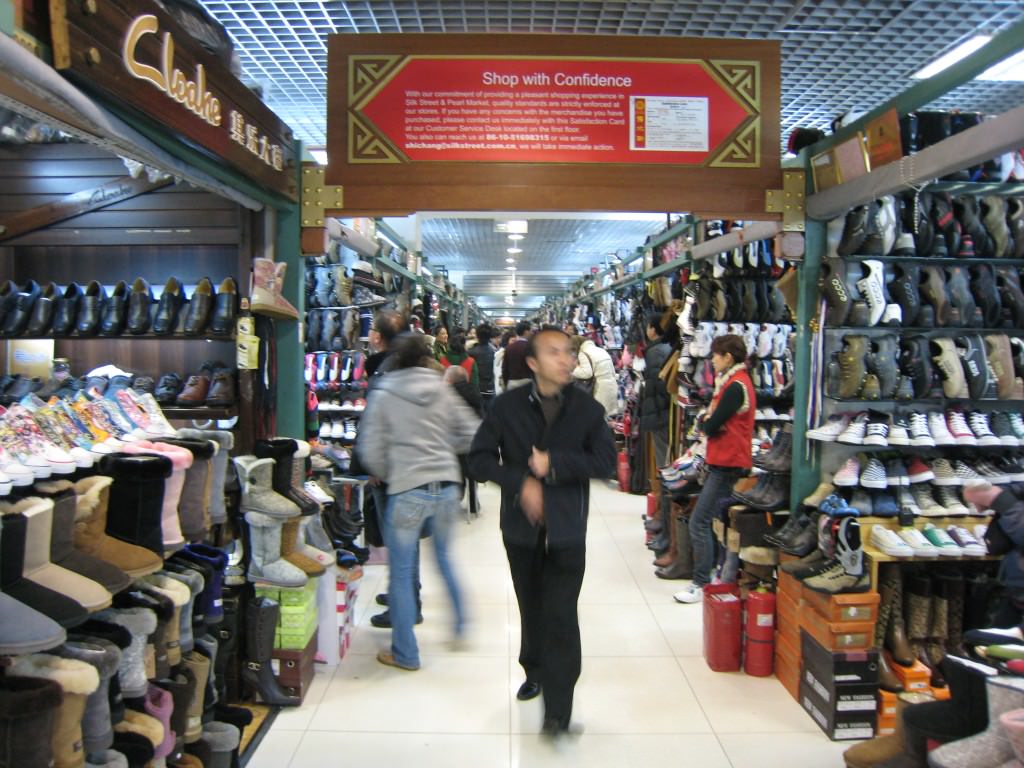
If you want to practice your new haggling skills, there are a few famous markets in Beijing worth checking out. All are stocked with pretty similar stuff, from Beijing souvenirs to clothes and handbags knock-offs, but they all have their own atmospheres.
Silk Market – the original tourist trap, full of Western tourists and multilingual vendors. The ridiculously inflated prices and sanitized glass shops take the fun out of haggling.
Hongqiao Pearl Market – next to the Temple of Heaven, this market is on the smaller side with 4 floors, 2 of which are stocked with pearls, but a good bottom floor of electronics. You can haggle to your heart’s content.
Bairong Mall – like a large wholesalers’, this market has dirt-cheap prices for anything you can imagine.
Panjiayuan Glasses City – whilst its neighbor Panjiayuan Antiques Market is notable mainly for its crowds and the sheer amount of people selling fake goods, the glasses market is a godsend for anyone who wants some new lenses.
See more articles by this author here.
Images: Places2Holiday, Into Study, Learn Mandarin Now, One Step Forward

